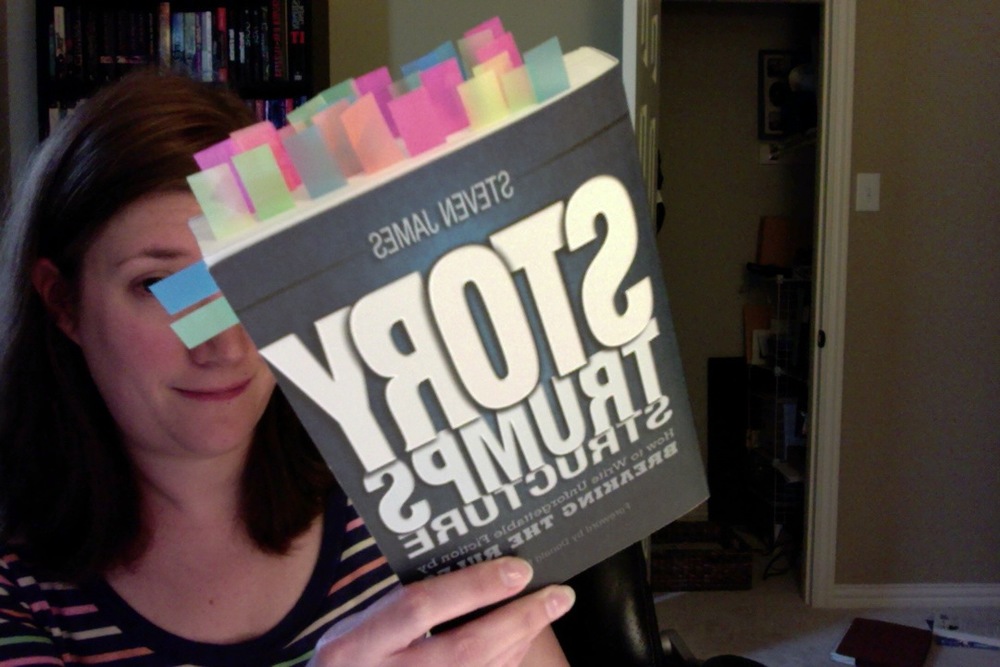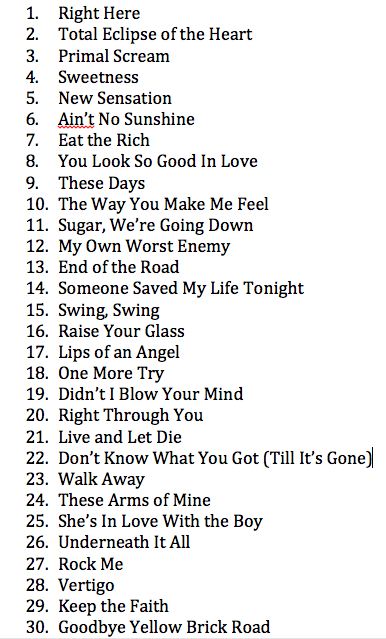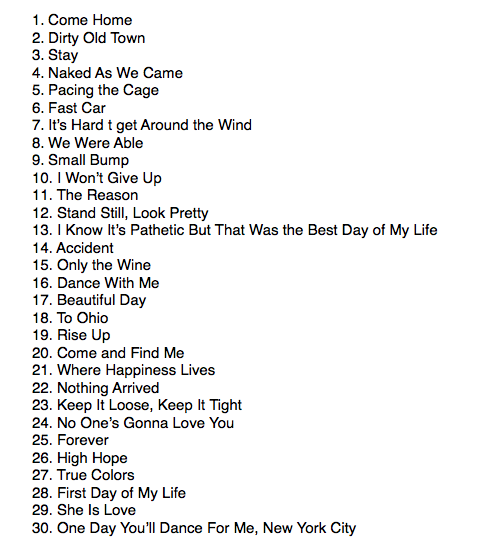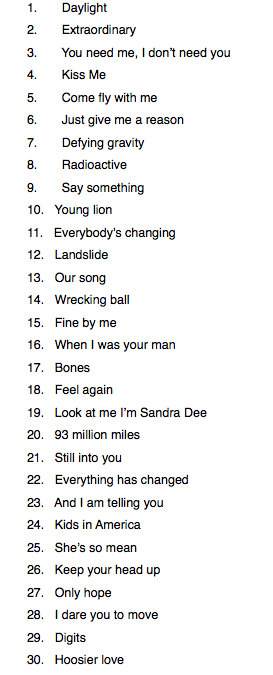I'm a writing book whore. I can't deny it. I know every how-to-write book says this one is "the only writing book you'll ever need". But yeah, whatever. Not true. Every book on craft that I pick up, I learn SOMETHING new. A new technique, a new way to look at things, an a-ha moment on something I was having trouble with. These books feed your writer brain like Reese's chocolate easter eggs feed your soul. So I figured I would compile a list from my personal stash of writing books to recommend.
*This is an old post that I have updated and added new books to.
Thirteen Writer Woes and the Books to Cure Them
Problem #1:You're a pantser and are dying to figure out a way to SIMPLY plot without having to become something you're not.
Though I have a little nerdgasm looking at pictures of people's plotting white boards with all their notes and post-its and color-coding and index carding, the idea of actually doing that to one of my stories makes my throat close up. But, at the same time, I crave some organization, some rough map of where I'm going. Enter my favorite book, *pets its cover* Seriously, life-changing. I can now write entire synopsis (to sell on proposal) before I've written any of the novel. Don't worry that it says screenwriting, it totally applies to novels as well.
Save The Cat! The Last Book on Screenwriting You'll Ever Need by Blake Snyder
This was another life-changing book for my writing life. I always had plotter envy. Some part of me thought that was the "right" way to write a book and I was just cheating. Well, this book helped me embrace my pantser-ness and learn ways to work with some of the downfalls of pantsing. I recommend this to any writer. I've had plotters who have read it an gotten a lot of out of it too. Highly recommended.
Story Trumps Structure by Steven James
Another book that goes with the screenwriting method of writing is My Story Can Beat Up Your Story by Jeffrey Alan Schechter. This one has some great techniques for that loose style of plotting. Lots and lots of good stuff. I've made worksheets from some of his stuff that I use with every book.
Problem #2: You keep getting partial requests but not follow-up full requests. So, you may, um, suck at openings.
Hooked: Write Fiction That Grabs Readers at Page One and Never Lets Them Go by Les Edgerton
This is a tiny little book with a lot of great information.
The First 50 Pages by Jeff Gerke is also a great one for analyzing your opening pages and getting a reader hooked.

Problem #3: You're writing your first book and are absolutely overwhelmed by the process.

Problem #4: Your stories seem to lose focus or meander during the process.
Or maybe you're getting feedback from critters saying--I'm not really sure why your character is doing this or this scene doesn't seem to have a focus/point. This means you need to get down to the bones that hold a character and story together. This one is a classic you'll hear recommended over and over.
Goal, Motivation, & Conflict by Debra Dixon

Problem #5: You know you can write, but your books still aren't getting that agent, publisher, or enthusiasm from readers.
You get feedback like, "You clearly have talent, but the story or characters just didn't resonate with me or reach out and grab me."
The Fire in Fiction: Passion, Purpose and Techniques to Make Your Novel Great

Problem #6: When you go back to edit your book, you have to cut a ton of scenes because they just aren't moving the story forward or adding anything.
Problem #7 You need to write some hawt scenes, but whoa, shock of all shocks, sex isn't that easy to write! Who knew?
*I do a workshop on writing love scenes, so if you're ever around when I'm doing one, I encourage you to attend! :) You can see where I'll be on my Events page.
Passionate Ink: A Guide to Writing Erotic Romance by Angela Knight

Problem #8: You've been told you need to "tighten" your writing or you need a refresher on grammar.
I'm not sure how you can make a book about grammar engaging, but somehow, Constance Hale makes it happen. I actually enjoyed reading the book, and it's a good refresher for the basics but also the not-so-basic intricacies of grammar. Sin and Syntax by Constance Hale.
Want to write tight?
The Book on Writing: The Ultimate Guide to Writing Well by Paula LaRocque

Problem #9: You just want a kickass book on writing and want to hear Stephen King talk about what adverbs have to do with hell.

Problem #10 - Your characters jump off the page and readers instantly feel connected to them, but your plot is weak or downright absent.
This book has been a life saver for me because plot is always my biggest struggle. It's one of those books you want to read slowly and more than once because there's a brilliant nugget on every page. Pretty much anything James Scott Bell writes about writing resonates with me. I don't plot ahead but this helps me analyze structure after the fact. I also made worksheets from some of his questions to use when I'm brainstorming a book.
Plot & Structure: (Techniques And Exercises For Crafting A Plot That Grips Readers From Start To Finish) by James Scott Bell

Problem #11 - You can come up with the most twisty-turny, compelling plot ever, but your characters are cardboard players stuck in there just to serve the plot or are completely unbelievable.
Problem #12 - You're writing is "good" but you can't seem to make that draft sing and stand out.
I had the privilege of seeing Margie Lawson speak at a local conference on fresh writing and it really was a revelation. (When you read MELT INTO YOU, the prologue was totally inspired by that class. I came home and wrote it the night after her lecture.) Her editing system and focus on taking the clichés out of your writing is amazing. She doesn't have a book, but she has lecture packets. And though twenty bucks may seem pricey for a packet, I can assure you these packets are THICK and chock full of awesomeness. Check them out here.
So those are some of my faves. Every time I open one of these books, I learn something useful. It's like my prescription when I have writer's block.
Problem #13 - You're running out of ways to describe expressions and ways for characters to express certain emotions.
The Emotion Thesaurus by Angela Ackerman and Becca Puglisi is a great reference source listing all kind of emotions and then the physical expressions of them.
So do you suffer from any of these above afflictions? Which one? Do you have any of these books? What's your favorite craft book and why?























